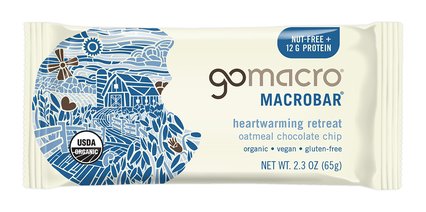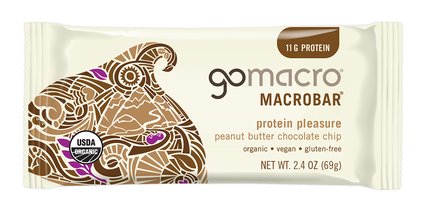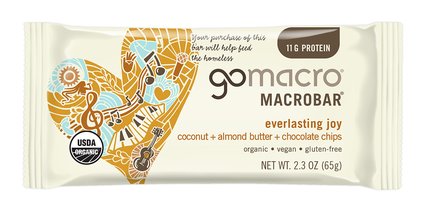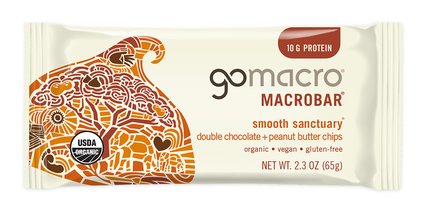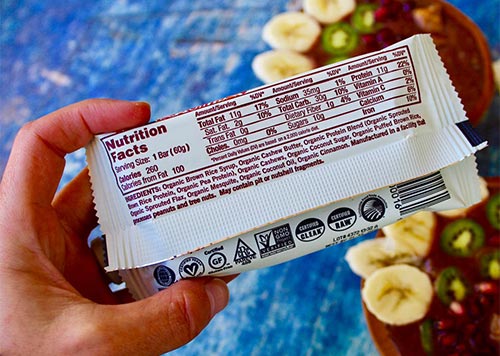7 Benefits of Drinking Water: Why Hydration is Important
At some point, you've probably heard that you should be drinking more water, but what does water do for your body? Our bodies are made up of about 60% water, making it crucial to almost all vital functions, but the benefits reach beyond our baseline needs. They can impact our mental state and quality of life. Here are some of the significant benefits of drinking enough water.
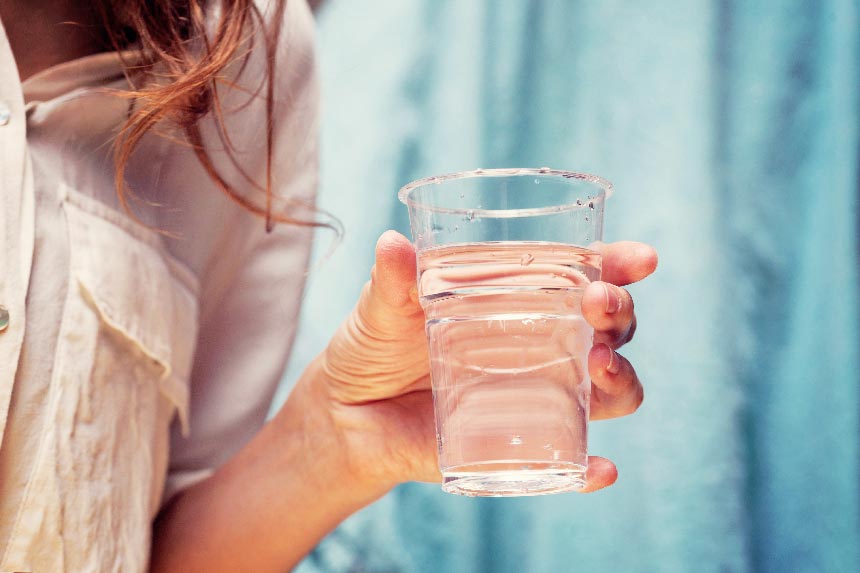
1. Body System Regulation
With the exception of a hike on a hot summer day or a grueling spin class without a water bottle, we tend to not pay much attention to all of the less glamourous tasks water does for us.
While we go about our day, water is quietly regulating our body temperature through sweat and respiration, keeping our joints lubricated, delivering nutrients to our cells, flushing toxins from our bodies, and enabling our neurons to even think about water in the first place. It's not glamourous work, but water sets the foundation for nearly all of our bodily systems.
Summary: Humans are about 60% water, and proper hydration allows the body to perform nearly all essential functions, from building cells to transporting nutrients to maintaining body temperature.
2. Cognitive Performance
The human brain is about 73% water, yet hydrating isn't usually the first thing we think to do when we feel mentally foggy or unfocused. Body water loss of just 1-2% is enough to impair cognitive performance, including attentiveness, critical thinking skills, and memory. Students who brought water with them to an exam scored an average of 5% higher than those who did not, even when controlling for grades on previous coursework.
Another small study showed that even mild dehydration is enough to alter your mood, energy level, working memory, and ability to think clearly. Several studies note water's positive effects on vigor and performance perceptions on tasks requiring attention and alertness.
The same principle applies perhaps even more for workers who have physically demanding jobs. One study of forestry workers found that those who drank less water took longer to complete their tasks than those given more water throughout the day.
Summary: Proper hydration helps you think more clearly and improves memory and focus, all of which can lead to improvements in most areas of your life.
3. Digestion
If you suffer from bloating or constipation and you're already eating a balanced, plant-based diet, water intake may be the culprit. The two critical components to healthy digestion and elimination are hydration and fiber.
Water helps eliminate liquid waste from the kidneys and helps keep things moving in the colon by keeping stool soft. Soluble fiber (like you find in oats or apples) supports this process by signaling the digestive system to hold onto water to keep stool bulk. In contrast, insoluble fiber helps to push material along to help keep you regular.
Plus, if you've ever felt nauseous or had other digestive issues during exercise, dehydration may be partially to blame. A study found that dehydration led to gastrointestinal upsets during exercise.
Summary: Dehydration is one of the most common causes of constipation. Try increasing your water intake to help keep your digestive system functioning smoothly.
4. Athletic Performance
One of the times we're most aware of our need for hydration is when we're exercising. As the body's core temperature warms up, it begins to produce sweat to cool the body, which leads to loss of water and electrolytes. Depending on the individual, the intensity of exercise, and room/weather conditions, this can lead to mild or moderate dehydration.
Dehydration can have severe effects on athletic performance. A loss of sweat equal to 2% of body weight causes a noticeable decrease in physical and mental performance, and losses of 5% or more of body weight during physical activities may decrease work capacity by roughly 30%.
Because blood plasma is mostly water, dehydration increases blood viscosity (i.e., your blood thickens), which causes less blood to be pumped in and out of the heart and results in lowered cardiac output (Sport Nutrition: An Introduction to Energy Production and Performance).
When dehydrated, our bodies also produce less sweat, which leads to higher average body temperatures. Higher body temperature seems to increase glycogen's breakdown – the process responsible for muscle fatigue and soreness.
In another study, athletes in a dehydrated state showed an increased level of the hormone cortisol, which competes for some of the same receptors in the body as testosterone, the primary hormone required for muscle growth. Higher cortisol levels also tend to reduce the amount of testosterone released as a response to weight training.
Summary: Drinking plenty of water before, during, and after physical activity helps to regulate body temperature, can improve cardiac output, and can support muscle endurance.
5. Skin Hydration
Many celebrities and beauty gurus swear by the power of hydration for glowing skin – but is there any science to back it up?
The answer isn't straightforward. One study did find that higher water inputs in participants' regular diets seemed to positively impact the hydration and biomechanical behavior (such as elasticity) of skin. Most experts agree that because our skin is an organ, proper water intake can help skin cells function optimally, just as it would help any other cells in the body function well. By consuming more water, the overall benefits to your body might explain the anecdotal reports of improved skin appearance.
However, the water we drink will go to all other internal vital organs before it goes to the skin, so there's little research to support the idea that hydration is directly connected to skin hydration. So, drink that water, but if your skin is feeling dry, be sure to invest in a good moisturizer!
Summary: Drinking more water will benefit your body as a whole, and some limited research supports the idea that water helps hydrate the skin.
6. Sleep & Energy
Hydration and sleep seem to have a two-way relationship. Significantly dehydrated people often report feeling extremely tired or fatigued, and dehydration can contribute to cramping, snoring, or thirst, making it difficult to get quality sleep. At the same time, it appears that a lack of sleep may contribute to dehydration.
People in the US and China who slept only 6 hours a night had significantly higher dehydration rates than those who slept eight hours. While this study doesn't prove causation, the association in two distinct cultural contexts gives more weight to the findings.
We lose water during sleep as we breathe, so our circadian rhythm signals the body to produce the hormone vasopressin in the latter part of sleep to promote water retention. This process can be disrupted by interrupted or shorter nights of sleep, so sleep deprivation contributes to dehydration.
Summary: Dehydration can cause drowsiness and fatigue. Staying well-hydrated is associated with feeling more energetic during the day and can help you sleep better at night. Lack of sleep can lead to higher rates of dehydration.
7. Kidneys and Urinary Tract
When you're adequately hydrated, you'll probably find yourself heading to the bathroom more often than usual – but that's a good thing! Increased water intake means higher volume and dilution of urine, which are both great for keeping your kidneys and urinary tract healthy.
Increased fluid intake is an effective preventive measure for decreasing kidney stone recurrence and may help reduce the risk of a first episode.
A randomized study also showed that increasing the daily consumption of water by 1.2L decreases urinary tract infections' recurrence by 48% in low-volume drinking women.
Summary: Drinking plenty of water helps support your kidneys and can help prevent the occurrence and recurrence of kidney stones and UTIs.
Tips for Improving Hydration
- Keep your water bottle nearby. It's much easier to remember to sip throughout the day when your beverage is next to you. Invest in a nice water bottle or tumbler so you can take your water in the car, at your desk, and when you're out and about.
- Incorporate fiber and electrolytes. While there are many benefits of drinking water, water alone can sweep right through your digestive system without actually hydrating. Be sure to get adequate sodium, potassium, magnesium, and other trace minerals in your food, or drink coconut water or electrolyte powders.
- Start the day with warm lemon water. Rather than hitting the coffee right away, try starting with lemon water to replenish the hydration you've lost during the night and kickstart your digestive system. Try adding a little sea salt and ground chia to your drink for extra help!
- Eat plant-based, hydrating foods. Drinking water is excellent for hydration, but soups, smoothies, fruits, and veggies are all packed with water and vitamins that can count toward your daily hydration goal.
The Takeaway
The human body is 60% water, and water is key to nearly all body processes, from cell building and brain function to athletic performance and even digestion. To reap all the benefits of hydration, be sure to consume 2/3 of your body weight in ounces of water per day and try to incorporate plenty of hydrating, plant-based foods. You might be surprised what a difference it makes in your energy and overall health.
To learn more about or purchase GoMacro products, visit our Shop page.
